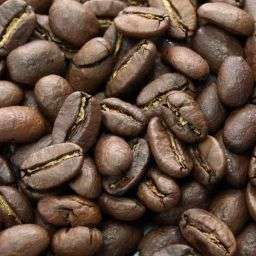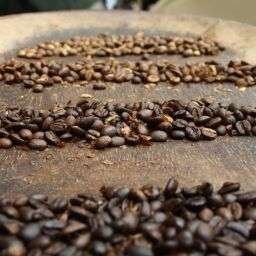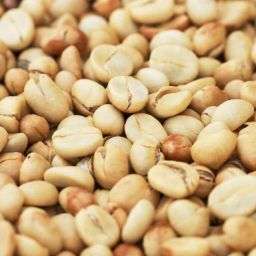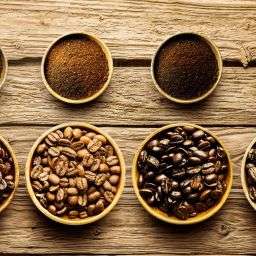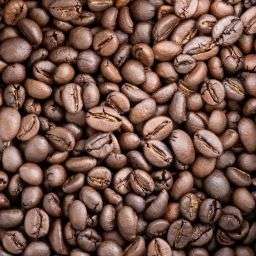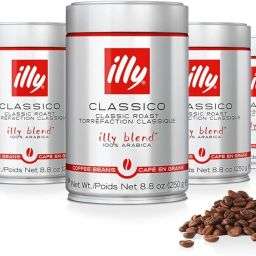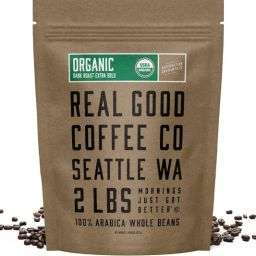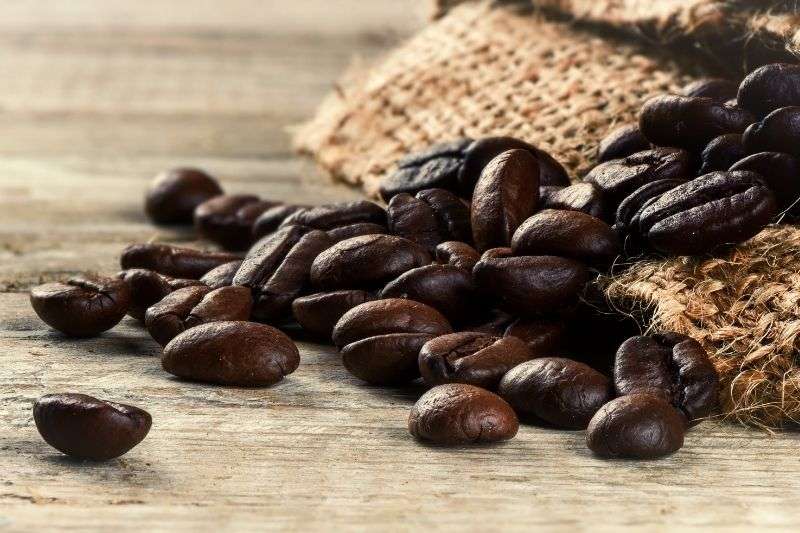
The allure of strong coffee transcends mere taste, embodying a culture of resilience and vigor. For many, it’s not just a beverage but a vital morning ritual, offering the mental and physical stimulation needed to kickstart a productive day.
The strength of coffee is primarily gauged by its caffeine content, a critical metric for enthusiasts seeking that robust flavor and the energetic boost it promises. This universal appeal has led to the emergence of various brands, each claiming to offer the strongest coffee beans in the world, catering to a growing demand for high-caffeine brews.
Key Takeaways for Coffee Enthusiasts
- Balance Between Caffeine Content and Flavor: The pursuit of the world’s strongest coffee often revolves around maximizing caffeine content without compromising taste. A delicate balance is essential, as a high caffeine level can sometimes lead to bitterness, overshadowing the rich and nuanced flavors cherished by coffee aficionados.
- Appeal of Strong Coffee to Different Demographics: Strong coffee has a broad appeal, resonating with various demographics. From night-shift workers needing to stay alert, to athletes seeking a pre-workout boost, and students pulling all-nighters, the demand spans across diverse groups, each with unique needs and preferences.
- Health Considerations and Recommended Consumption: While the invigorating effects of strong coffee are widely sought after, it’s crucial to consider health implications. The recommended caffeine intake for adults is up to 400 mg per day, roughly equivalent to four 8-ounce cups of coffee. Exceeding this can lead to adverse effects such as insomnia, nervousness, restlessness, and a fast heartbeat. Moderation is key, and individuals should tailor their consumption to their tolerance levels and health conditions.
The Contenders for the World’s Strongest Coffee
In the quest for the ultimate energy boost, several brands stand out for producing some of the world’s strongest coffee. These coffees are not just about the high caffeine content but also about the quality and unique profiles they bring to the table. Let’s delve into the key contenders.
Overview of Key Brands
What distinguishes a coffee brand in terms of strength isn’t solely its caffeine content but also the quality of beans, the roasting process, and the unique flavors they manage to infuse despite the high caffeine levels. Brands that stand out often offer a balance between a robust caffeine kick and a palatable taste, without veering into excessive bitterness.
High Voltage Coffee
High Voltage Coffee is renowned for its electrifying caffeine content, positioning itself as one of Australia’s strongest coffees. Characterized by its robust flavor profile, it boasts over 1,000 mg of caffeine per 12 oz serving. This brand appeals to coffee lovers seeking a significant energy boost without the bitterness typically associated with high-caffeine coffees.
Black Insomnia Coffee
Originating in South Africa, Black Insomnia Coffee pushes the limits with 1,105 mg of caffeine per 12 oz, making it a formidable player in the strong coffee market. It blends Robusta and Arabica beans to achieve a powerful yet smooth taste, ensuring a wakeful experience without the harshness.
Cannonball Coffee Maximum Charge
Cannonball Coffee’s Maximum Charge blend is notable for its slightly lighter roast, which allows for a potent caffeine content of 1,101 mg per 12 oz while maintaining a superior taste. This UK brand prides itself on offering “strong coffee for strong people,” focusing on both potency and flavor.
Biohazard Coffee
Biohazard Coffee presents itself with a staggering 928 mg of caffeine per 12 oz. This single-origin Robusta coffee is dark roasted to achieve a bold, rich taste. Despite its intimidating name, it promises a high-caffeine coffee experience that is organic and devoid of additives or preservatives.
Death Wish Coffee
Death Wish Coffee has become synonymous with high-strength coffee, offering a dark roast that contains 728 mg of caffeine per 12 oz. This brand combines Robusta and Arabica beans to deliver a coffee that is both strong and flavorful, with a hint of cherry and chocolate notes. It has gained a massive following for its bold flavor and equally bold branding.
Killer Coffee and Other Notable Mentions
Killer Coffee, another Australian brand, stands out for its ability to extract a high caffeine content from solely Arabica beans, offering a different taste profile with a caffeine content of 645 mg per 12 oz. Other notable mentions include Banned Coffee, known for its smooth, rich taste with notes of chocolate and berries, and the UK’s Sons of Amazon, boasting a blend of ethically sourced beans.
Each of these brands has carved out a niche in the strong coffee market, offering caffeine levels far beyond the average cup. However, what truly makes them stand out is their ability to balance such high caffeine content with enjoyable flavors, catering to the tastes of coffee enthusiasts who seek both strength and taste in their brew.
Factors Influencing Coffee Strength
The strength of coffee is determined by a combination of factors, including caffeine content, bean type, and roasting process. Caffeine content is the most direct measure of a coffee’s strength, with higher levels providing a stronger energy boost. The type of bean also plays a crucial role; there are two main varieties, Robusta and Arabica, each with distinct caffeine contents and flavor profiles.
Lastly, the roasting process can influence the perceived strength of coffee, as it affects the bean’s flavor, aroma, and caffeine levels. Darker roasts, often perceived as stronger, may actually contain slightly less caffeine than lighter roasts due to the longer roasting time.
Robusta vs. Arabica
In the context of coffee strength, Robusta beans are generally considered stronger than Arabica beans due to their higher caffeine content and more intense, sometimes bitter, flavor. Arabica beans, on the other hand, are known for their smoother, more nuanced flavors. Those seeking the strongest coffee typically lean towards Robusta or blends that incorporate Robusta beans for an extra kick.
FAQs
Is stronger coffee more bitter?
Not necessarily. While a higher caffeine content can contribute to a bitter taste, factors like the quality of the bean, the roasting process, and the brewing method play significant roles in the final flavor profile. A well-crafted strong coffee can be rich and intense without being overly bitter.
How does the roasting process affect caffeine content?
The roasting process has a minimal effect on the caffeine content of the beans. However, it does impact the bean’s mass and size. Lighter roasts retain more mass, potentially leading to a slightly higher caffeine content by volume when measured with a scoop. Darker roasts, while often perceived as stronger, may actually have slightly less caffeine by volume due to the beans’ reduced mass.
Can you build a tolerance to strong coffee?
Yes, regular consumption of high-caffeine coffee can lead to tolerance, requiring higher doses to achieve the same stimulating effects. This adaptation can also increase sensitivity to caffeine withdrawal symptoms.
Are there health risks associated with consuming high-caffeine coffee?
While moderate coffee consumption is generally safe for most people, excessive intake of high-caffeine coffee can lead to negative health effects, including insomnia, nervousness, restlessness, stomach irritation, rapid heartbeat, and muscle tremors. It’s important to consume strong coffee in moderation and be mindful of individual caffeine sensitivity.
Final Thoughts
The journey to discover the world’s strongest coffee is as much about the quest for a rich, flavorful experience as it is about seeking the ultimate caffeine boost. This exploration touches on cultural and personal dimensions, reflecting the diverse ways in which coffee is enjoyed and valued across the globe.
The perfect strong brew is not just about the caffeine content but finding the right balance that satisfies the palate and energizes the soul. Whether it’s the bold intensity of Robusta or the nuanced complexity of Arabica, the quest for the strongest coffee invites enthusiasts to explore the depths of coffee’s rich and varied landscape.


